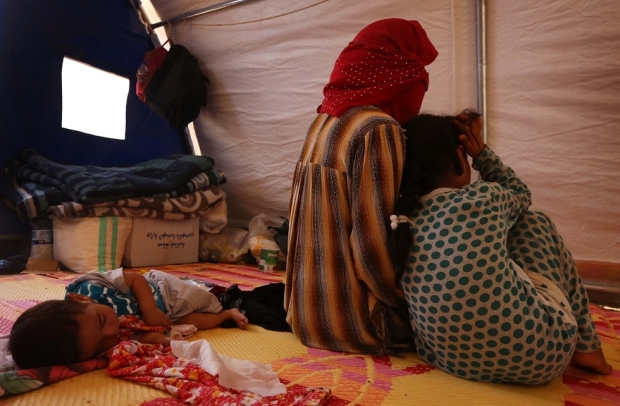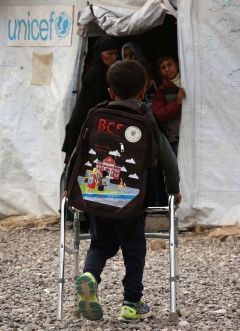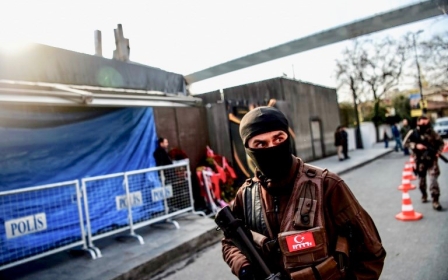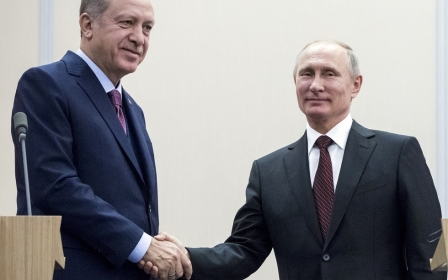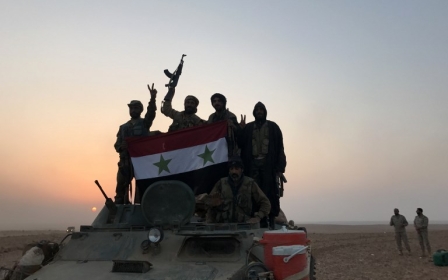Turkey in dilemma over what to do with scattered IS family members
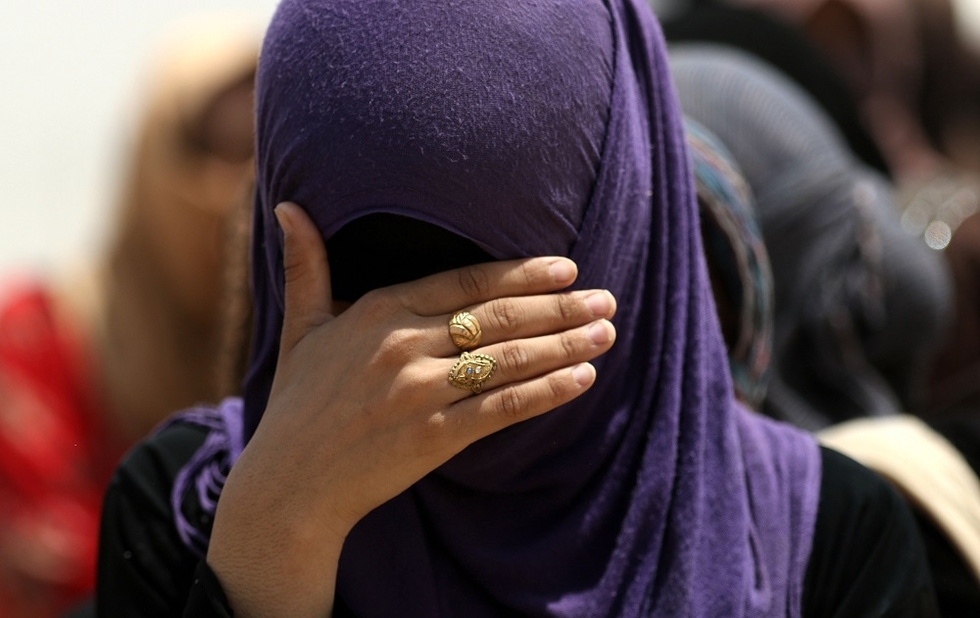
ISTANBUL, Turkey – What happens to the wives and children of Islamic State fighters, and how much of a helping hand do they deserve from their home country? And what of the militants themselves? How does a country deal with the aftermath of such a horrific upheaval in the Middle East?
Turkey needs urgent answers to these vital questions now that IS has collapsed in Syria and Iraq. The Soufan Centre says about 1,500 Turkish nationals joined IS as fighters, 900 of whom the think tank says are already back in Turkey.
Many Turkish women also travelled to the so-called "caliphate", and large numbers of children were either born in or taken to IS-held territory.
But Turkey's proximity to Syria and Iraq, and their porous borders, leaves Ankara facing not only problems with its own nationals but the possibility it will find itself home to all manner of former IS militants and family members banned from returning to their own countries.
On Monday, Iraqi officials announced the deportation of 509 women and 813 children captured during the fall of Mosul. Iraq believes this group, held in Tel Keif in northern Iraq, contains about 300 Turkish women.
The deputy chairman of the Nineveh provincial council, Nureddin Kablan, said more deportations would follow. "This is the second wave. We will have two or three more," AFP reported him as saying.
Kablan did not specify where they would be sent, but many countries have already stated they will not accept their return.
The Norwegian Refugee Council, an NGO, has said the group facing deportation in Iraq also contains Russians, Azerbaijanis and Tajiks. It made no mention of IS dependents with western European nationalities.
The French foreign minister, Jean-Eves Le Drian, says French nationals will be prosecuted in Iraq and the fate of their families will be decided on a case-by-case basis.
The UK has revoked the citizenship of dual nationals deemed to have been in regions of Syria and Iraq controlled by militant groups.
The fear is many of these people will find their way to Turkey, the main exit point from both Syria and Iraq. And that fear is not without foundation.
A statement by the justice ministry to parliament earlier this week said Turkey had 6,031 convicted foreign inmates as of June.
Pressure is already growing in Ankara on the question of returning Turks.
'Try Turks in Turkey'
On Monday, relatives of Turkish IS members gathered in front of the foreign ministry in Ankara and demanded that their kin be brought back to Turkey and tried here.
They are part of a group of about 50 families campaigning for Turkish justice for relatives captured during the fall of the Iraqi town of Tal Afar three months ago.
"My nephew is ill and dying. Turkey is keeping silent," Ceylan Tilev said on Monday.
Bilal Altay wanted help for his daughter.
"My daughter and two grandchildren went from Raqqa to Tal Afar. Bring them here and try them," said Bilal Altay.
He stressed his daughter had been "deceived by a man and taken there forcibly".
‘Kidnapped children’
Another issue is the fate of children from mixed marriages where the foreign spouse left to join IS and took their children with them.
The Hurriyet newspaper's Idris Emen tracked down several families whose children were kidnapped by a spouse.
Sahin Aktan, a Turk, married Kyrgyz Svetlana Chasanova in Turkey in 2008 and had a son named Destan.
According to Aktan, Chasanova demanded a divorce in 2014 and was handed court custody of her child.
On 30 June 2014, Aktan learned that Chasanova had gone to Syria along with their son, using aliases, and married an IS fighter called Hamzat who was later killed.
'I don’t know where my son is and in what state he is in. But I know he is alive. I want our state to find him'
- Sahin Aktan, father of child taken by IS
Chasanova contacted Aktan for the first time earlier this year from Iraq, and demanded $10,000.
Aktan was sent a photo of his son in front of an IS flag posing with an index finger salute used by the group.
Aktan said he last spoke to his son three months ago, and wants the government to rescue him.
"I don’t know where my son is and in what state he is in. But I know he is alive. I want our state to find my son and bring him back. My six-year-old son should be rehabilitated then," said Aktan.
Another child stuck in Raqqa is three-year-old Yigit Alp. Ramazan Bozkurt, Yigit’s father, said his wife Hulya divorced him and took their son to Syria.
He reported her move to the police. Bozkurt said his wife contacted him four months ago and sent him a photograph from Raqqa showing his son with injuries suffered in an air strike.
The last he heard was that they were taken hostage two months ago.
Deniz Ozturk recounted how, in 2014, her then-husband asked her to start wearing a full black veil. She refused and woke up one day to find her husband and her three-year-old son were gone.
The husband had joined IS in Syria with his brother and nephew, with Ozturk's son in tow.
On 2 January 2016 she received a message from the nephew saying her former husband had been killed and had asked him to care for his son. He refused to return her son. She last learned that they were in Deir Ezzor two months ago.
"It has been three years since they took my son to Syria. I know I will see him again. As a mother it is difficult to say but even if it is his corpse I want it. At least let his grave be here."
It is complicated and difficult cases like these that Turkish authorities need to resolve, and fast.
New MEE newsletter: Jerusalem Dispatch
Sign up to get the latest insights and analysis on Israel-Palestine, alongside Turkey Unpacked and other MEE newsletters
Middle East Eye delivers independent and unrivalled coverage and analysis of the Middle East, North Africa and beyond. To learn more about republishing this content and the associated fees, please fill out this form. More about MEE can be found here.


